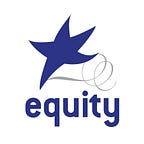FIVE TOP TIPS FOR KEEPING AFLOAT FINANCIALLY
Financial literacy educator Nicole Pedersen-McKinnon offers timely advice on how to work through your personal financial stress, streamline your expenses and, hopefully, end up with more money in the bank.
Good riddance 2020! But for the entertainment industry, challenges remain.
JobKeeper will fall again on January 4, with the full-time rate going from $1200 to $1000 per fortnight, and the part-time rate from $750 to $650.
Meanwhile, those who didn’t qualify for JobKeeper, and are on JobSeeker, will see their payment fall by another $100 come January. The coronavirus supplement that you get if you receive even $1 of social security payment will drop again from $250 to $150, but at least it will now continue until the end of March.
The other scheduled change to JobSeeker in January is that you may again need an employment separation certificate to apply. Hopefully, however, the government will see sense and extend the waiver of this requirement.
If you get any kind of benefit (pensioners, veterans, carers, people on family tax benefits and Commonwealth Seniors Health Cardholders), don’t forget that there was a $250 bonus cash payment earlier in December and another due in March.
So that’s the situation on the income front. But there are five tactics you can use to boost the amount of money landing in your bank account in 2021 — and also dramatically streamline your expenses.
1. Claim both JobKeeper and JobSeeker
Few people realise there is a government-condoned loophole that allows you to, yes, claim both. Social Services Minister Anne Rushton has confirmed that someone receiving JobKeeper, at $1200 per fortnight today, may also be able to claim $276 a fortnight of JobSeeker. And those now on the $750 JobKeeper part-time rate could up their payment by $546.
Of course, you have to contact Centrelink to see if you’re eligible. You will need to report all income, including JobKeeper, but an additional $300 of allowable income is part of the reason this opportunity exists.
2. Discount all your expenses
If you lost income in 2020 and have a mortgage, you should have been able to get a mortgage-repayment holiday. That simply means what it sounds like: your repayments will be stopped for a while. While that means you’ll ultimately pay more interest, it’s preferable if things are currently too tight.
If you’re a renter, you should also have been able to secure a discount… but this was far more fraught, as many negotiations were left up to individual property managers and landlords.
What you may not know, though, is that every utility and insurer is required by law to have a financial-hardship department, to help people who are struggling to pay bills and premiums.
You need to contact every provider you have difficulty paying — in advance — and explain that. As counter-intuitive as this is, they should make allowances that could include a discount, lower payments or a repayment deferral.
3. Access emergency cash
So-called payday lenders, which are really old-school loan sharks dressed up to look legitimate, have boomed in the pandemic. These outfits effectively charge an interest rate of up to 400 percent and using one could comprehensively send you into a debt spiral.
But don’t assume a rent-to-buy scheme is any better, if you need to urgently replace, say, an appliance. Such schemes can end up costing you many, many times the actual purchase price.
(Legislation has been tabled to crack down on both these types of unconscionable operators.)
If something goes wrong that requires a lump sum, and you don’t have emergency funds, there is a far better way. The No-Interest Loan Scheme is for real and offered by Good Shepherd Microfinance through 160 community organisations around the country. Interest-free loans are available up to $1500. You can also get low-interest loans, via what’s known as a Step-Up Loan, from $800 to $3000. This money would usually be for a broken appliance, car-repair bill or education expense.
Find more information here.
4. Access $10,000 of your super
This is very much a last resort, but if you are struggling to make ends meet and are in danger of going deep into debt, it may be a preferable solution.
The second $10,000 of coronavirus cash is available to withdraw from your super until December 31. To be eligible, you must have lost a job or at least 20 percent of your working hours.
5. See a free financial counsellor
As part of the circa $300 billion in stimulus spending, financial counsellors were given (actually given back) money. You can access their free services to help you organise and negotiate most of the above. Call the National Debt Helpline on 1800 007 007 or visit ndh.org.au
Finally, remember you are not alone in dealing with the economic fallout of a national lockdown. And it is not your fault.
If you need psychological support to go with the financial help, you can contact Beyond Blue’s dedicated coronavirus helpline on 1800 512 348 or at coronavirus.beyondblue.org.au
Nicole Pedersen-McKinnon is the author of How to Get Mortgage-Free Like Me, available at nicolessmartmoney.com Follow Nicole on Facebook, Twitter and Instagram.
